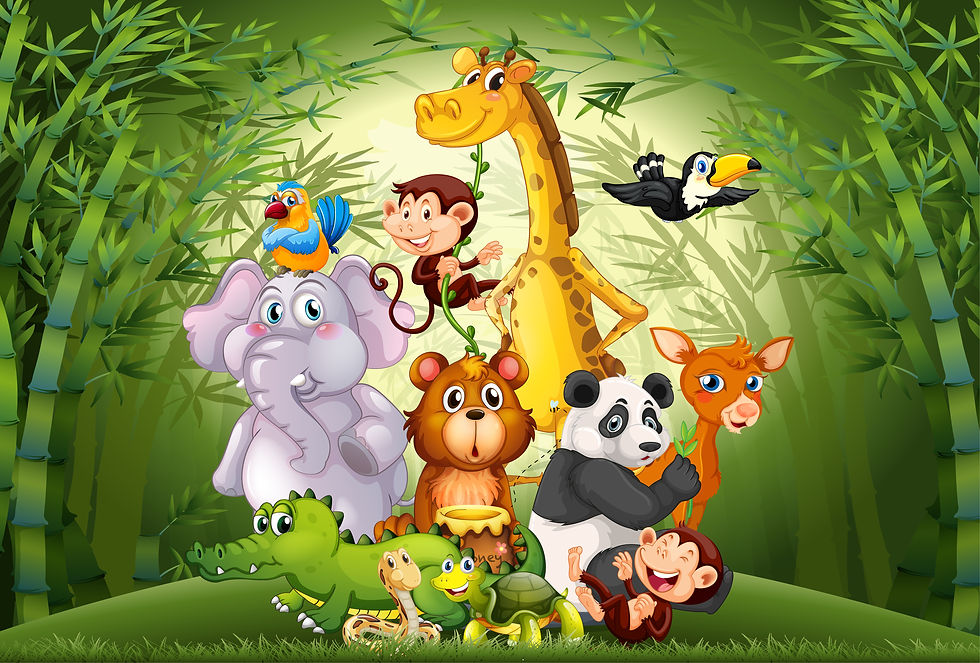Wild Animals Are Less Wild And More Human Than Many Humans In This World.
- The Introvert Bird

- Jun 5, 2022
- 3 min read
Inhumane acts of killing wild creatures and making ecological imbalance.

Namaste.
We all know that forests play a vital role in tackling climate change by storing carbon that would otherwise be released into the atmosphere. But did you know that the wild animals in these forests also have a crucial role to play?
From the dog sitting on your couch to the near-mythical narwhal in the depths of the Arctic ocean, animals play a key role in environmental protection and human wellness. From offering a wealth of natural medicines to safeguarding us from climate shocks and improving soil health, we need wildlife for our survival, well-being and prosperity. The importance of wildlife to a continued human existence has never been more obvious than it is today.
Nature is, and has always been, valued for its aesthetic values. In an increasingly commercialised world which can often feel cold and empty, it is important that we have something inspiring and thought provoking to turn to when we need a break. Animals can fill this void, whether we simply visit a park and watch the pigeons for a while, go to the zoo, or are lucky enough to experience animals in their wild habitat.
Human fascination with the beauty of wild animals drives tourism worldwide. Tourism raises awareness of the need to conserve delicate ecosystems containing vulnerable endangered animals. However, the way we live and work – from the food we eat to how we build our infrastructure – is causing a steep decline in their numbers.
"Everytime we lose a species, we break a life chain that has evolved over 3.5 billion years."
Wild animal migration, distribution can be a vital indicator of health of the ecosystem and the deeper impacts of climate change. Animal behaviour can also be an important indicator of unprecedented events, such as earthquakes, or large storms, because as per the historical info, wildlife can behave differently when they sense an imminent threat.
In a positive light, wild animals can inspire people to lead a sustainable lifestyle. They can invoke feelings of empathy and compassion, causing people to be conscious of the damaging effects of their lifestyles.
Climate Change. Protecting wildlife could significantly reduce the frequency and intensity of destructive forest wildfires. Plant-eating wild animals reduce the amount of grass that can fuel fires through grazing. Furthermore, large wild grass-eaters such as elephants, zebras, rhinos and camels do not produce so much methane, a potent greenhouse gas, as domestic livestock. Many tree species in tropical rainforests rely on animals like elephants to eat their large, fleshy fruits – and so help disperse their seeds. Beavers reduce flooding and wildfire damage, preserve fish populations, and conserve freshwater reservoirs, a key to combating the effects of climate change. Squirrels’ natural habitat is the forest where they play a major role as nature’s tree planters. Octopi put their tentacles to work reusing and reducing waste through their creative use of glass containers, coconut shells, and other debris to create shelters. Ultimately, the ecological handyman, birds really do it all, from reforestation and seed pollination to pest control and soil fertilization.
Food Source. Wild animals serve as a critical food source, rich in proteins and minerals for billions of people around the world. Billions of people rely on fish and meat, which providing a rich source of protein, vitamins, minerals, and essential fatty acids. The proportion of children suffering from anemia is projected to increase by 29 per cent if they lose access to meat from wildlife, with a much greater impact on lower income households.
Soil Health. Wild animals play a key role in enhancing the health and fertility of soil by improving its nutrients. Their dung and urine helps replenish the nutrient content of the soil by providing it with enriching minerals. Rats has a speciality with their keen sense of smell and trainability, and are being trained to sniff out landmines, allowing previously unusable land to once again be productive.
Medicines. Chemicals from nature have been a part of human civilization ever since our early ancestors began using them to improve and enrich their own lives. Amphibians are especially important for modern medicine with compounds extracted from frogs alone used for treating depression, seizures, strokes and memory loss.
With respect to the conservation and future of our planet, animals can inspire people to change their lifestyle and rally for a brighter future.
Lemme know your thoughts in the comments. Thanks!
Jai Hind.








Comments